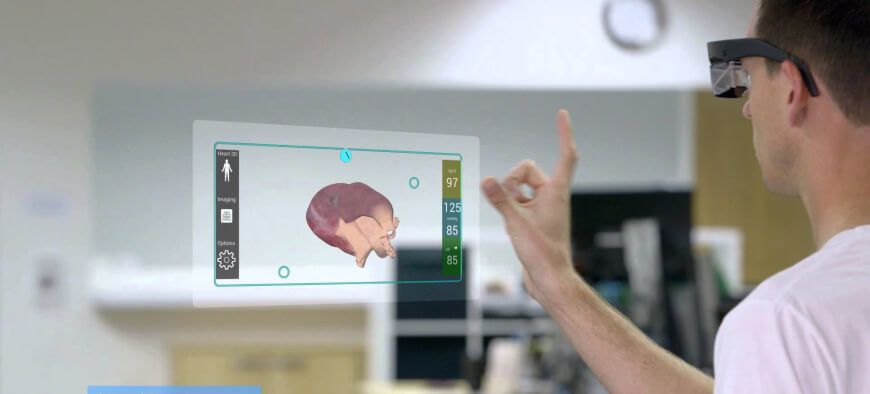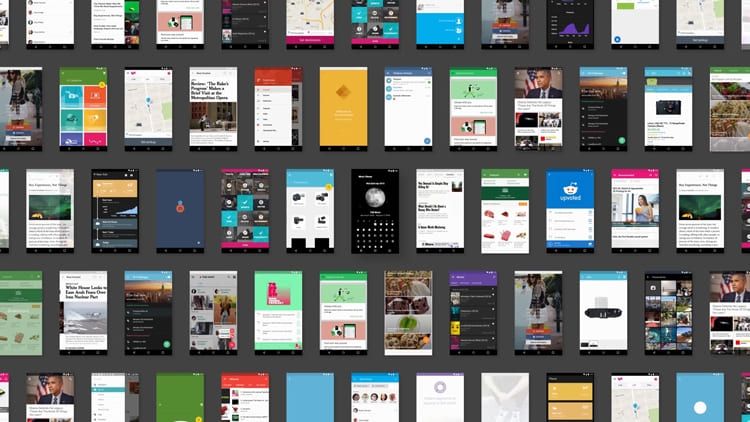Mobile trends to look for in 2019

The mobile market is strong as never before in recent years. Statista estimated that in 2018, the number of mobile app downloads reached approximately 205 billion – and this number will keep growing.
If anyone still wants to enter the market, it’s now or never, as competition grows tougher and one has to go an extra mile in order to surprise and satisfy a user.
There are certain technological trends every year that set a tone for the overall mobile app development. We have collected the most anticipated ones below – check them out and let us know what you think of them.
Artificial Intelligence and Machine Learning

These two technologies have been widely deployed and discussed for the last couple of years, and the investment into AI and ML has been growing steadily.
So it came as no surprise that mobile industry took an advantage of these technologies as well and presented unique apps that seemed as magic a mere 10 years ago.
One of the most well-known examples of an AI-based app is a virtual assistant, but the use of AI in mobile goes beyond that. As businesses today are shifting towards customer-centricity, personalization becomes a must-have for any business in order to improve customer experience and earn their trust. AI for mobile can:
- Analyze user behavior and adapt to it
- Provide personalized suggestions
- Use a smartphone camera to interact with the user
Overall, AI can deeply analyze Big Data (which is another hot trend in recent years), identify hidden patterns in the data and, based upon them, build accurate forecasts and predictive models about possible customer behavior.
This comes as an incredible advantage for the companies that utilize AI, as they will be able to create more personalized offers and tailor their marketing strategy correspondingly.
All this greatly adds up to customer experience and can serve as a serious competitive advantage.
Augmented Reality

Game apps are not the only example of smart usage of AR for mobile. Some savvy e-commerce companies started to use AR in order to draw nearer to brick-and-mortar experience.
Sephora offers users to “try on” makeup before placing an order and the only difference between the physical store and the app is that you can stay at home while browsing the virtual store.
Ikea app works by the same principle and offers users to “try” furniture in their own home before buying an actual piece.
So, either it’s a gaming app or the one that is used for brand promotion, it can benefit greatly from AR integration – the trick is to think of a clever marketing strategy beforehand.
Mobile Payments

The global mobile payments revenue has hit $930 billion in 2018 and is growing. As customers are getting more used to paying for goods and services via their mobile devices, it opens new opportunities for the development of mobile wallets and advanced mobile payments.
Mobile payments will greatly increase personalization, eliminate mass marketing and offer quick and easy checkout. This trend is coming for sure, so business owners have to already start thinking about reliable and secure payment system to integrate within an app.
Connection with Wearables and Smart Devices

Last year, Gartner estimated smartwatch sales to reach 81M units by 2021 thus representing 16% of total wearable device sales – but wearables category is growing today.
As a concern for healthcare and overall wellness is growing, businesses are thinking of new ways to merge healthcare tools and modern technology.
Thus, in 2019 we will be seeing not only fitness trackers and healthcare bands, but smart sneakers or smart gloves too. Smart wearables would require corresponding mobile apps for the user, so this is another new opportunity to think of if you are a business owner or want to develop a mobile app.
As for smart devices, we are speaking about the Internet of Things here. Smart homes, smart parking spaces and smart alarm clocks – all of them need a control interface and a mobile app that appears to be the handiest option to manage the settings.
The technology is blooming and, while all big players like Samsung or Philips already introduced their products, small and middle-sized companies and startups now have a good chance to join the game.
Instant Apps

Modern users are impatient and expect an immediate response from an app. As well, there is an issue of capacity – no one wants to download a heavyweight app. So instant apps come as a solution as they do not require downloading, have smooth performance, and are native and very user-friendly.
Such apps were first introduced by Google in 2016 and are now gaining popularity due to their benefits over classic apps.
A user can open an app and try it before downloading, thus being able to access the app and see, whether he likes it or not. One of the best things about instant apps is also an opportunity to share them – just like with regular apps.
Cloud Apps

Cloud mobile apps are estimated to count for 90% of the global mobile traffic in 2019. One of the major reasons behind such popularity is the high level of security that a cloud provides. Cloud storage can prevent data leakage and is overall very reliable in terms of security.
In addition to high security, the benefits of cloud apps also include:
- Lower operation cost
- Lower hosting cost
- High productivity
- Smooth performance
- Work on both platforms (iOS and Android)
Conclusion
Same as other services and products, mobile apps are shifting towards personalization and constant performance improvement. All the trends mentioned above are aimed at delivering excellent performance and, at the same time, being as personalized for the user as possible.
Considering that UAE and Dubai, specifically, is a modern hub for innovations, startups from this region are most likely to be the pioneers in terms of adopting new and bold solutions, based on the cutting-edge technology.